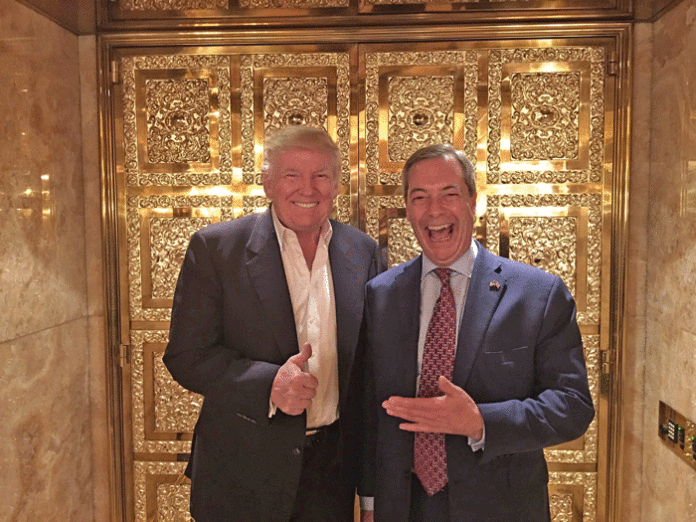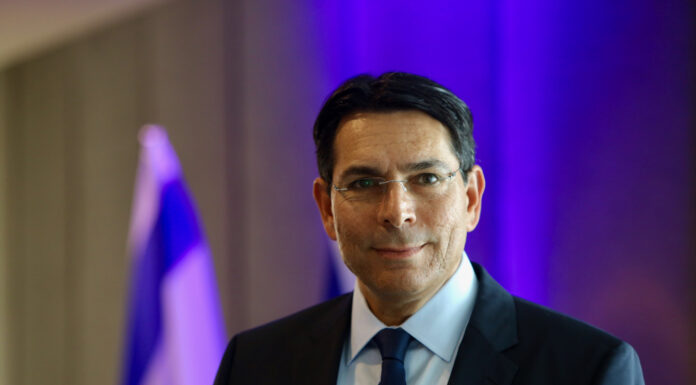If there is a father of Brexit, it is Nigel Farage. The movement to take the United Kingdom out of the European Union has been associated with many politicians, but there is one prime mover whose face appears in the mind of British people when Brexit is mentioned.
He has never been a member of the UK Parliament. But he has been the political head of two euroskeptic political parties in the UK, first UKIP—from 2006 through 2009 and then again from 2010 through 2016—and then, in 2019, the Brexit Party, which has since changed its name to the Reform UK Party now that the party’s previous goal, Brexit, has finally been reached.
Farage has long been skeptical about the UK’s relationship with Europe, even as he served as a British member of the European Parliament for 20 years, right up until the UK left. His advocacy against the euro and against being part of the EU helped the UK resist one and leave the other.
But he has also taken interest in the nationalist politics of countries around the world, who have seen in his Brexit push a blueprint for national pride and independence. That has included the US, where the Brexit vote in June of 2016 was seen as a kind of precursor to the election of Donald Trump that November. Farage has been a booster of Trump and even appeared at some of his campaign events.
Ami spoke with Farage about the legacy of Trump, the dangers of Biden, and how UK and US politics are both intertwined and separate.
How are you doing this afternoon?
I’m well. Living in lockdown is pretty miserable, but hey.
There’s one thing that’s uniting the entire world: this terrible virus.
Yes. The lack of normal human interaction—because human beings are social creatures—is very unpleasant and deeply damaging, I suspect, as well.
Is it deeply damaging financially or psychologically?
The psychological damage to all generations is absolutely massive. A lot of older people have aged very much over the course of the last year; I can see it in people I know. For young teenagers, who are supposed to be out mixing and learning about human relationships, making mistakes and doing all the things that young people do, it’s terribly sad, I think. They’re having their childhoods taken from them.
Recently, I had the great privilege to speak with Dr. Anthony Fauci, who considers himself a man of science, and I certainly wouldn’t debate a man of science. But to me, everything that has been done—and I know that in the UK the prime minister has done a lot of aggressive things to combat this terrible pandemic—doesn’t seem to have a scientific basis or methodology.
No. We’re in the middle of our third national lockdown, and our death rate per capita is now the worst in the Western world.
Doesn’t that prove something from a scientific perspective? We’ve conducted this experiment, and it hasn’t worked.
It hasn’t worked. That’s absolutely right. The difficulty is knowing what does work, but what we can say, as a result of lockdown, is that the massive divide in society that exists between those working off public sector money—or for multinational companies—and those who are in self-employment is an absolute chasm. My email inbox is filled every day with people writing things like, “We’re a husband and wife who run a small business, and we’re desperate.” The lockdown and closing of all non-essential shops and services—as we have done here—have made the rich richer.
Say, for example, I wanted to buy my children a new pair of training shoes [sneakers]. I would normally go to the local town, have a coffee and a sandwich, buy a pair of trainers and do a few other bits and bobs. But I can’t do that because all the shoe stores are closed. So what do I do? I go to Amazon. I buy them from there, and they’re delivered a couple of hours later. Our economic experience of lockdown in the UK is that the big guys and the rich are doing phenomenally, and all the little people out there who set up companies off their own bat as electricians, plumbers or shopkeepers, who take risks with their own money, don’t get much vacation, don’t have much insurance—people who obey the law and bring their children up well—are the ones paying the economic and psychological price of this. That’s the aspect of lockdown that I find most disturbing: the disproportionate effect that it’s having on those individuals who have chosen to do their own thing in life. I find that very distressing.
To read more, subscribe to Ami





















